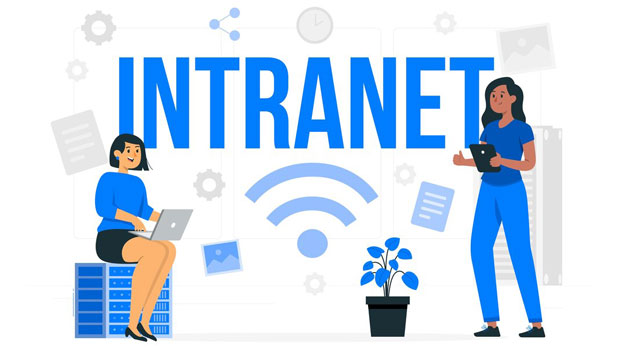In the current digital era, online privacy and security are of paramount importance, and proxies are vital tools for enhancing both. Among the various proxy services available, PYPROXY and PirateBay Proxy are two popular choices for users seeking wireless proxies. In this article, we will deeply analyze and compare their pricing structures to determine which offers the best value for money. The comparison will focus on features, pricing models, speed, reliability, and customer support, providing a comprehensive overview for customers looking to make an informed decision. Introduction to Wireless Proxy ServicesWireless proxies serve as intermediaries between users and the internet, masking their real IP addresses and providing enhanced anonymity. They are essential tools for those who need to access geo-restricted content, protect their online privacy, or bypass censorship. Among the many proxy services on the market, PyProxy and PirateBay Proxy are often compared due to their similar offerings. Understanding how each one stacks up in terms of cost and performance can help consumers make better choices.PyProxy vs. PirateBay Proxy: Pricing ModelsWhen evaluating the cost-effectiveness of any proxy service, the pricing model is crucial. Both PyProxy and PirateBay Proxy offer different plans, each catering to various user needs. However, it’s important to assess not just the upfront cost but also the overall value offered by each service. For instance, PyProxy may offer a subscription-based model with flexible pricing tiers depending on bandwidth usage and the number of devices, while PirateBay Proxy might offer a pay-as-you-go model that charges based on usage or data consumption.PyProxy Pricing OverviewPyProxy typically offers competitive pricing with a range of packages designed to suit various needs. Whether you are an individual user or a business looking for bulk proxy usage, PyProxy provides options that scale. For instance, the lowest-tier package might offer basic proxy services with limited bandwidth, ideal for casual browsing or occasional tasks. Meanwhile, higher-tier packages provide more bandwidth and additional features such as dedicated IPs, making them suitable for heavier users or businesses with more complex needs.PirateBay Proxy Pricing OverviewPirateBay Proxy, on the other hand, adopts a different pricing approach. Their pricing is generally more straightforward, and they offer flexible, usage-based pricing for those who need proxies on a short-term or intermittent basis. Although this pay-as-you-go model is convenient for users with fluctuating needs, it can become expensive for those who require continuous or high-volume proxy usage. While the lower base cost may seem attractive initially, users should carefully monitor their usage to avoid unexpectedly high charges.Feature Comparison: PyProxy vs. PirateBay ProxyThe pricing alone doesn’t tell the whole story. It’s also essential to consider the features that come with the service. For instance, PyProxy may provide enhanced encryption, faster connection speeds, and superior customer support as part of their packages. These added features may justify the slightly higher initial price for users who prioritize performance and security.PirateBay Proxy, on the other hand, is known for providing a simpler service with fewer bells and whistles. While it may be more affordable for occasional users, it may lack some of the advanced security features that more advanced users or businesses require. Users must weigh the importance of added security and performance against the cost.Performance and Reliability: Key ConsiderationsWhen it comes to proxies, performance and reliability are essential factors. PyProxy tends to provide a more reliable connection, with consistent uptime and low latency, ensuring that users can maintain uninterrupted access to the internet. This is especially important for users who require high-performance proxies for tasks such as web scraping, gaming, or accessing geo-restricted content.PirateBay Proxy, while generally reliable, may experience occasional slowdowns or interruptions due to its more budget-friendly pricing model. This can lead to issues for users who need constant, high-speed internet access. Reliability issues can significantly affect the user experience, especially for business clients who rely on proxies for professional activities.Customer Support: PyProxy vs. PirateBay ProxyAnother critical aspect of any service is customer support. PyProxy generally offers a more robust support system, with 24/7 customer service and dedicated assistance for troubleshooting technical issues. This level of support can be invaluable, particularly for businesses that rely on their proxy services for daily operations.PirateBay Proxy’s customer support, while adequate, may not be as extensive. Users may find themselves waiting longer for assistance, especially during peak hours. For casual users who don’t rely heavily on proxies, this may not be a major issue, but for those using proxies for business-critical tasks, lack of support could be a dealbreaker.Which One Is More Cost-Effective?Ultimately, the decision between PyProxy and PirateBay Proxy comes down to specific user needs. If you are an occasional user who only needs proxies for light tasks or short periods, PirateBay Proxy’s pay-as-you-go model may be the more cost-effective option. Its lower upfront costs may appeal to users who do not want to commit to a subscription-based plan.However, for users who need high performance, security, and consistent reliability, PyProxy offers better value for money in the long run. While it may have a higher initial cost, the extra features, superior customer support, and overall reliability make it a better investment for frequent users or businesses. Moreover, PyProxy’s pricing tiers provide flexibility, allowing users to choose a plan that matches their specific usage requirements.Conclusion: PyProxy or PirateBay Proxy?In conclusion, both PyProxy and PirateBay Proxy offer distinct advantages depending on your specific needs. PyProxy is likely the better choice for those who prioritize speed, security, and customer support, making it a more cost-effective option for regular or business-related use. On the other hand, PirateBay Proxy may appeal to users looking for a budget-friendly, pay-as-you-go solution for occasional use.When choosing between the two, users should carefully consider their budget, the volume of proxy usage, and the importance of additional features such as security and customer support. By evaluating all these factors, you can make an informed decision that best suits your needs and ensures the most cost-effective proxy service for your purposes.
Nov 07, 2025



































































